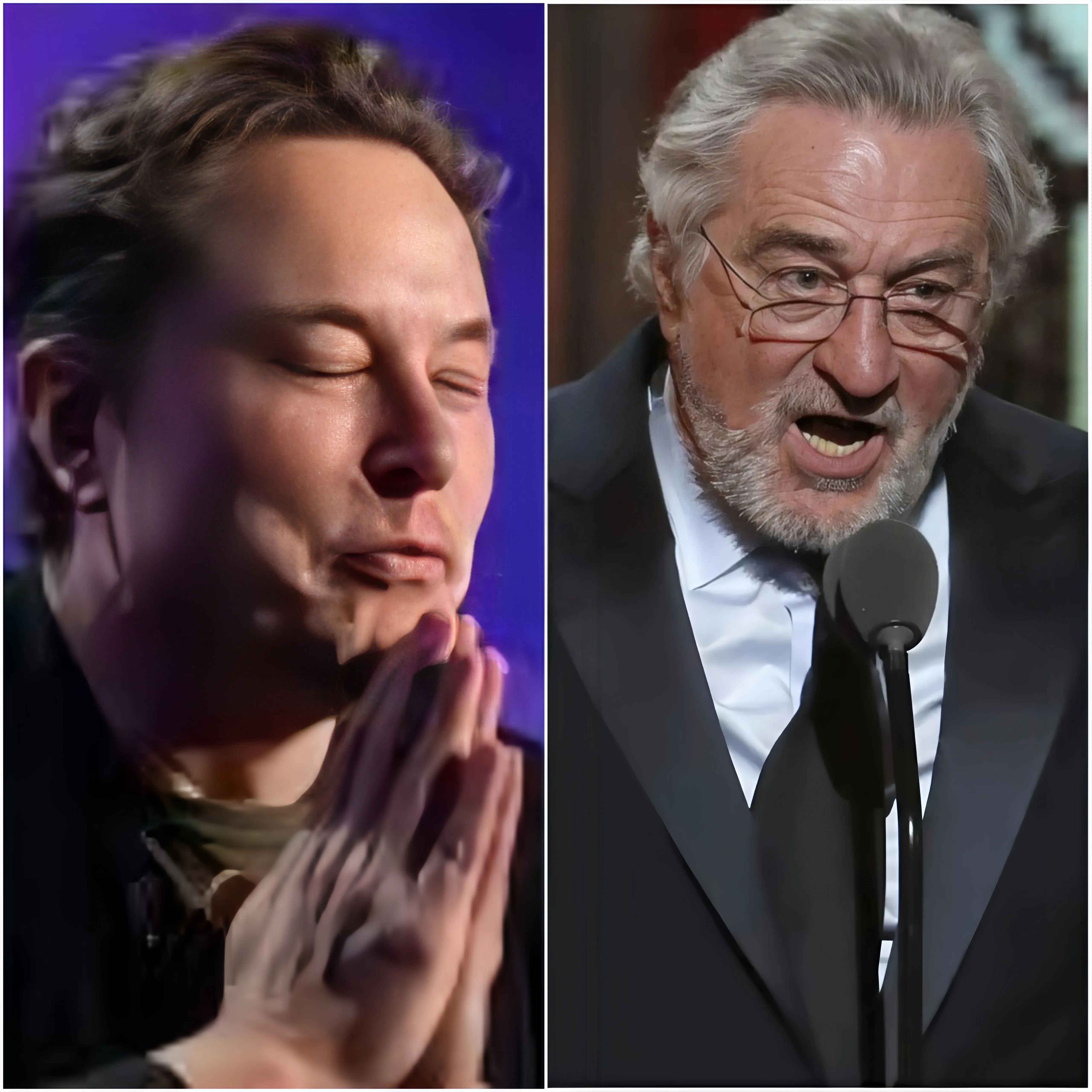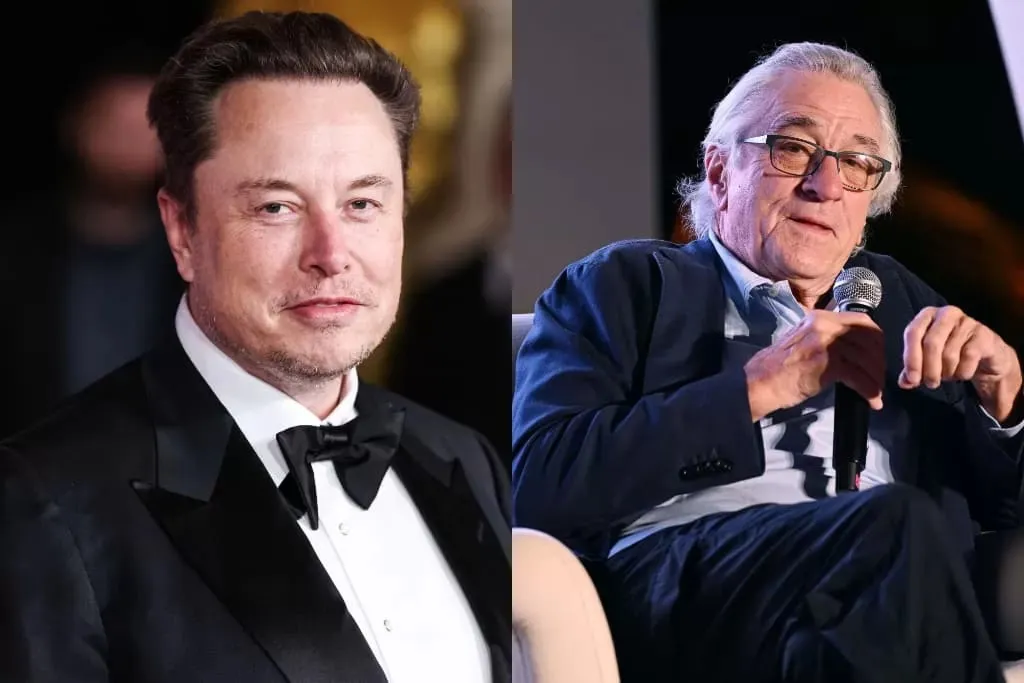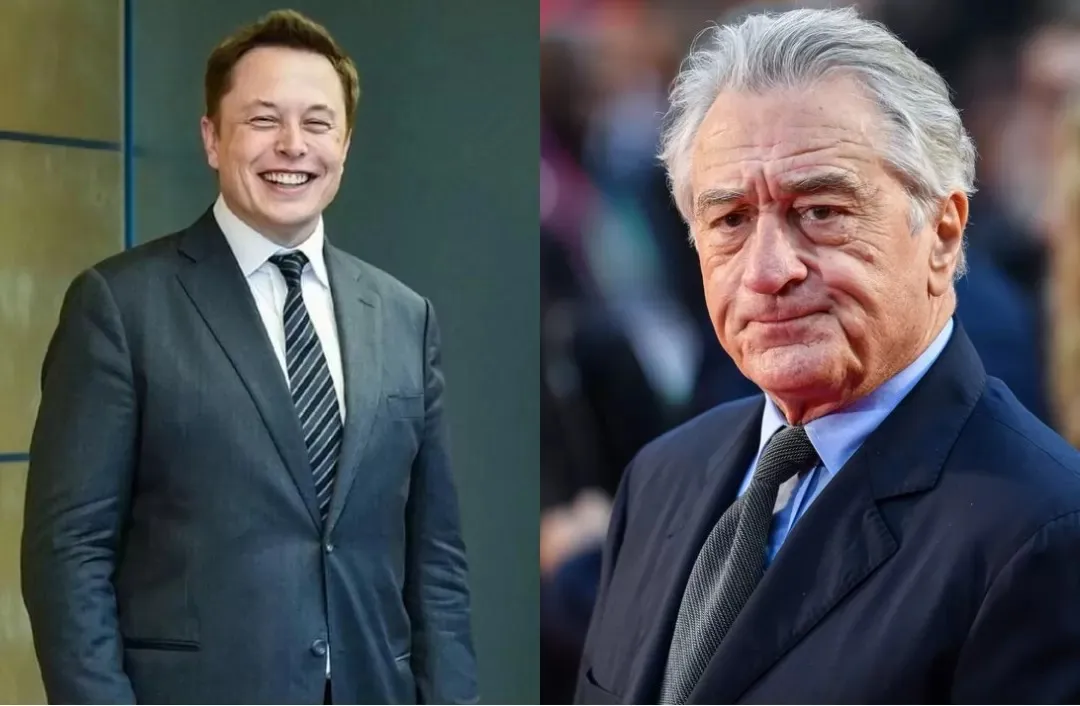In a dramatic turn of events, Hollywood icon Robert De Niro has been permanently banned from X (formerly Twitter) after a public clash with the platform’s owner, Elon Musk. The feud, which has captured widespread attention, comes after De Niro, known for his outspoken progressive views, criticized Musk’s business practices and political stance.

The altercation began when De Niro, who has consistently spoken out on issues like climate change, social justice, and workers’ rights, posted several comments critical of Musk and his leadership. Musk, a vocal advocate for free speech and a critic of “woke” culture, did not take kindly to these remarks. In a response that quickly went viral, Musk accused De Niro of fueling divisive rhetoric, which he claimed had no place on X. “Robert De Niro’s stance on ‘woke’ issues has become a toxic force on this platform,” Musk tweeted. “X is committed to free speech, but we will not tolerate constant calls for division and disruption.”

Soon after, X issued a formal notice confirming that De Niro had been permanently banned from the platform, citing violations of the community guidelines related to promoting “divisive speech.” The move has sparked a wave of reactions, with many questioning whether X is still a place for open discourse or if it’s becoming a space where certain views are silenced.
The ban has reignited the ongoing debate over the role of social media in political and social discussions. Musk, who has been a controversial figure in his own right, has long expressed frustration with what he perceives as the overreach of “woke” culture. He believes that such movements stifle free speech and create unnecessary division in society. De Niro, on the other hand, has been a vocal critic of figures like Musk, advocating for more progressive policies and a fairer, more just society. This clash between two of the most influential figures in modern media has only intensified the larger conversation about the boundaries of free expression on digital platforms.
While Musk’s supporters have defended his decision to ban De Niro, arguing that it’s necessary to protect the integrity of the platform and reduce harmful rhetoric, many of De Niro’s fans see the move as an attack on free speech. “This isn’t just about De Niro,” one tweet read. “It’s about silencing anyone who dares to speak out against the status quo.” The actor himself responded in a rare interview, expressing his disappointment with the decision. “It’s a shame that a platform meant for free expression has now become a battleground for corporate control and political agendas,” De Niro said. “I will continue to fight for what’s right, whether on X or elsewhere.”

For now, it seems that the feud between Musk and De Niro is far from over. Both men have made it clear that they are unwilling to back down from their positions. De Niro, a Hollywood legend known for his roles in films like Taxi Driver and Raging Bull, remains committed to using his platform to speak out for causes he believes in. Musk, meanwhile, continues to push for a social media ecosystem that champions the principles of free speech, but with his own distinct limitations.
This ban raises important questions about the future of social media and its role in shaping public discourse. As tech platforms like X and Facebook continue to evolve, the challenge of managing diverse viewpoints while combating misinformation and hate speech is becoming increasingly complex. The clash between De Niro and Musk highlights the growing tension between the need for moderation and the desire for an open forum where all voices can be heard.
Whether this incident will have a lasting impact on X’s reputation or spark a broader movement towards more stringent social media regulations remains to be seen. However, one thing is clear: the fallout from this ban is just another chapter in the ongoing battle over free speech in the digital age.
Leave a Reply